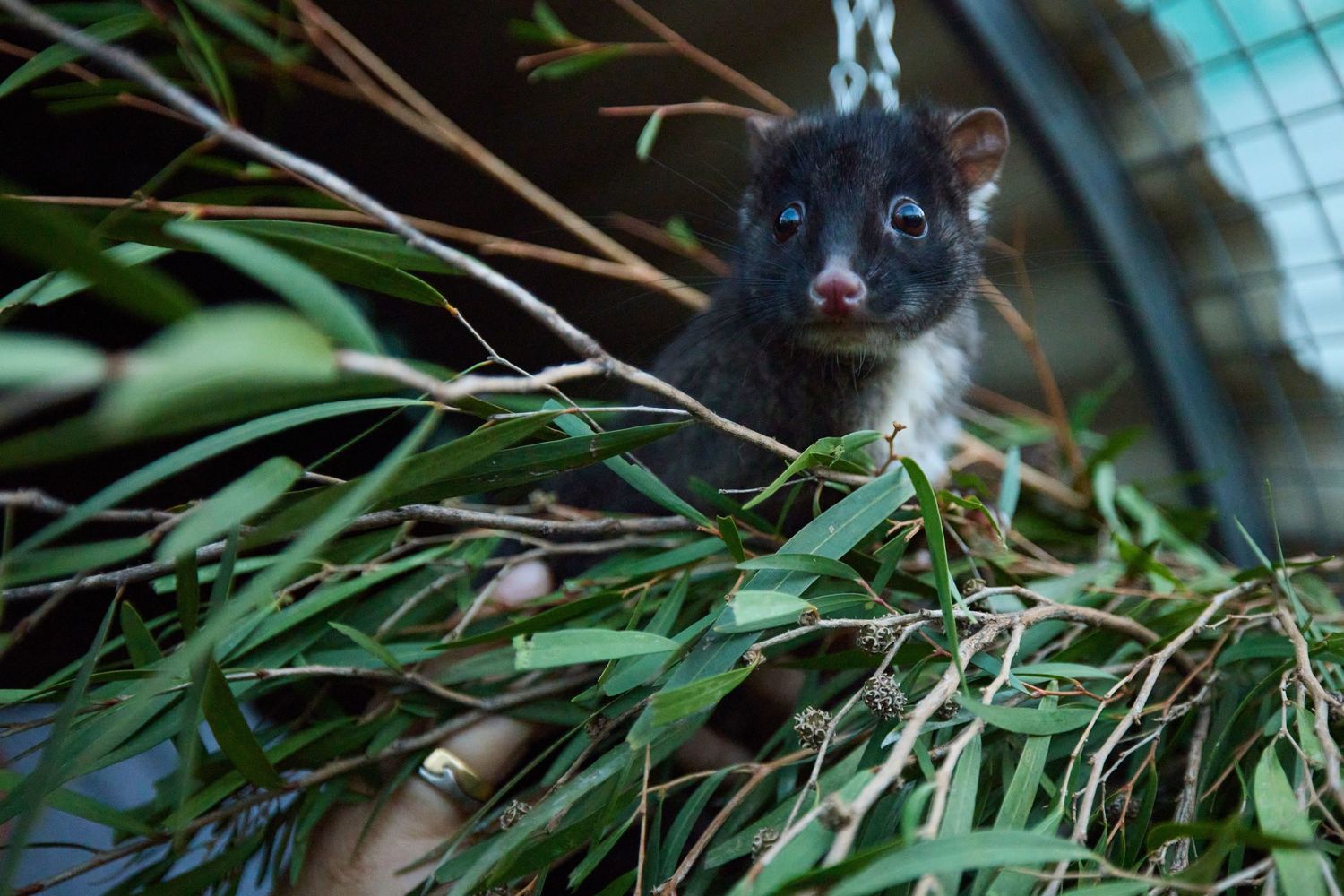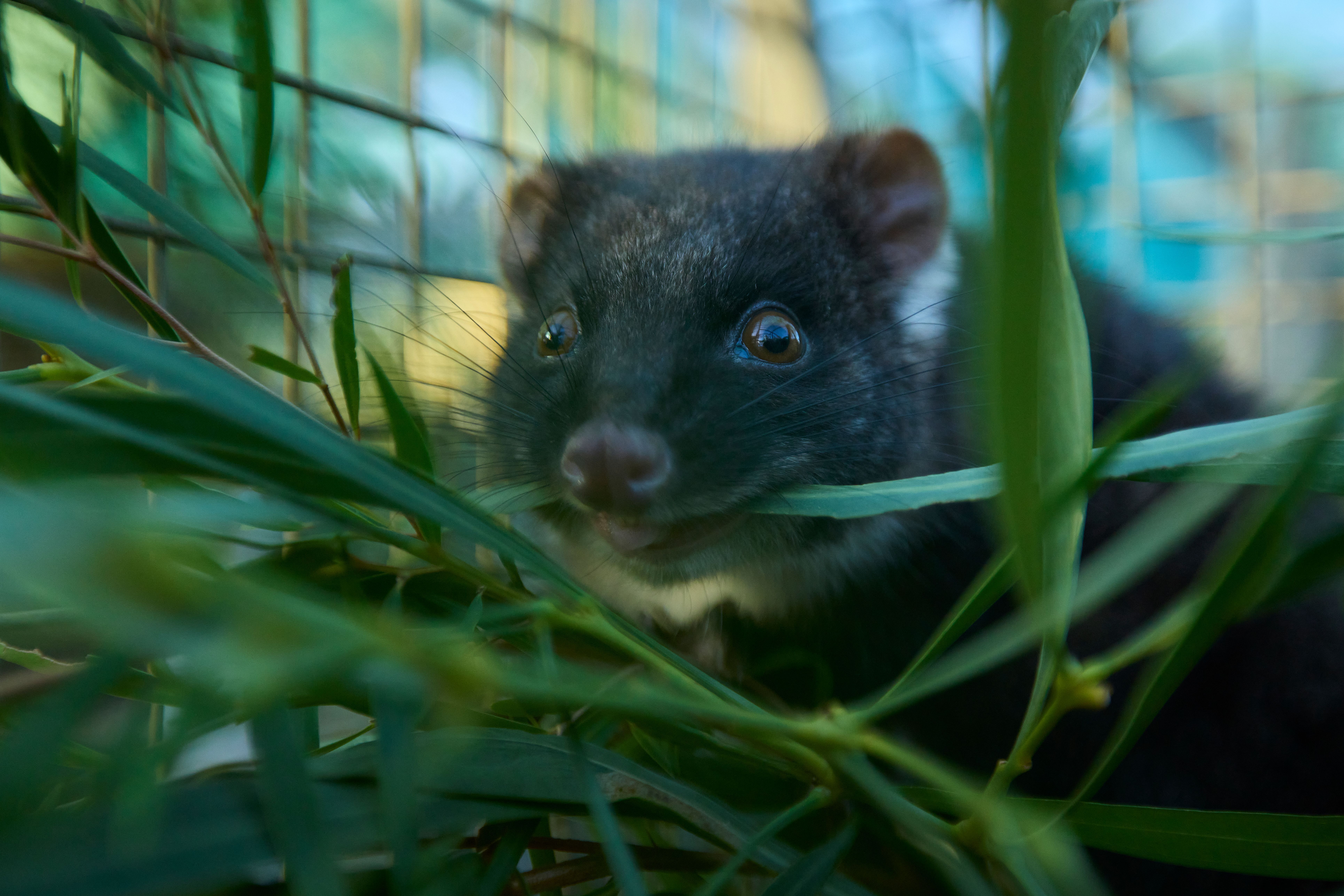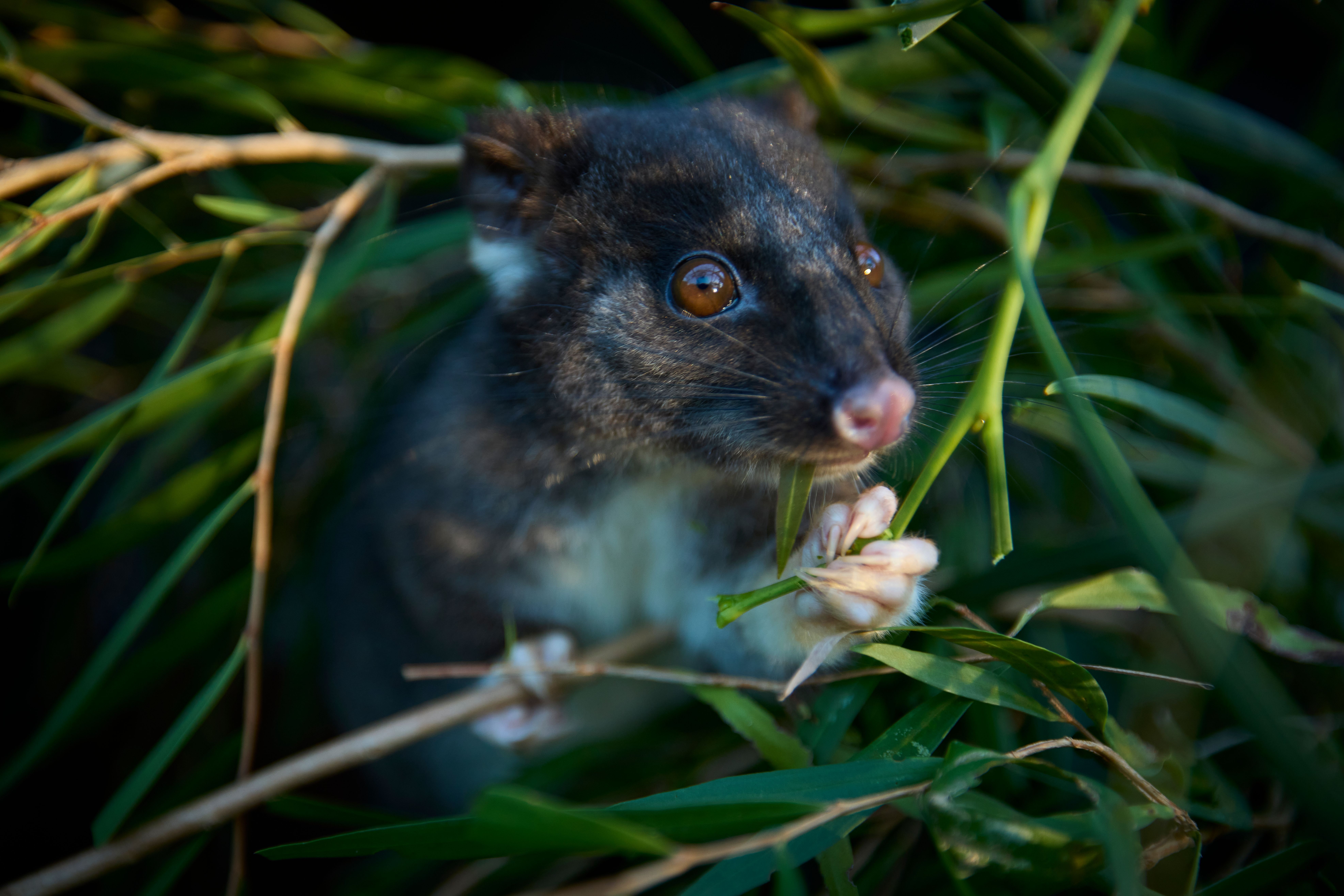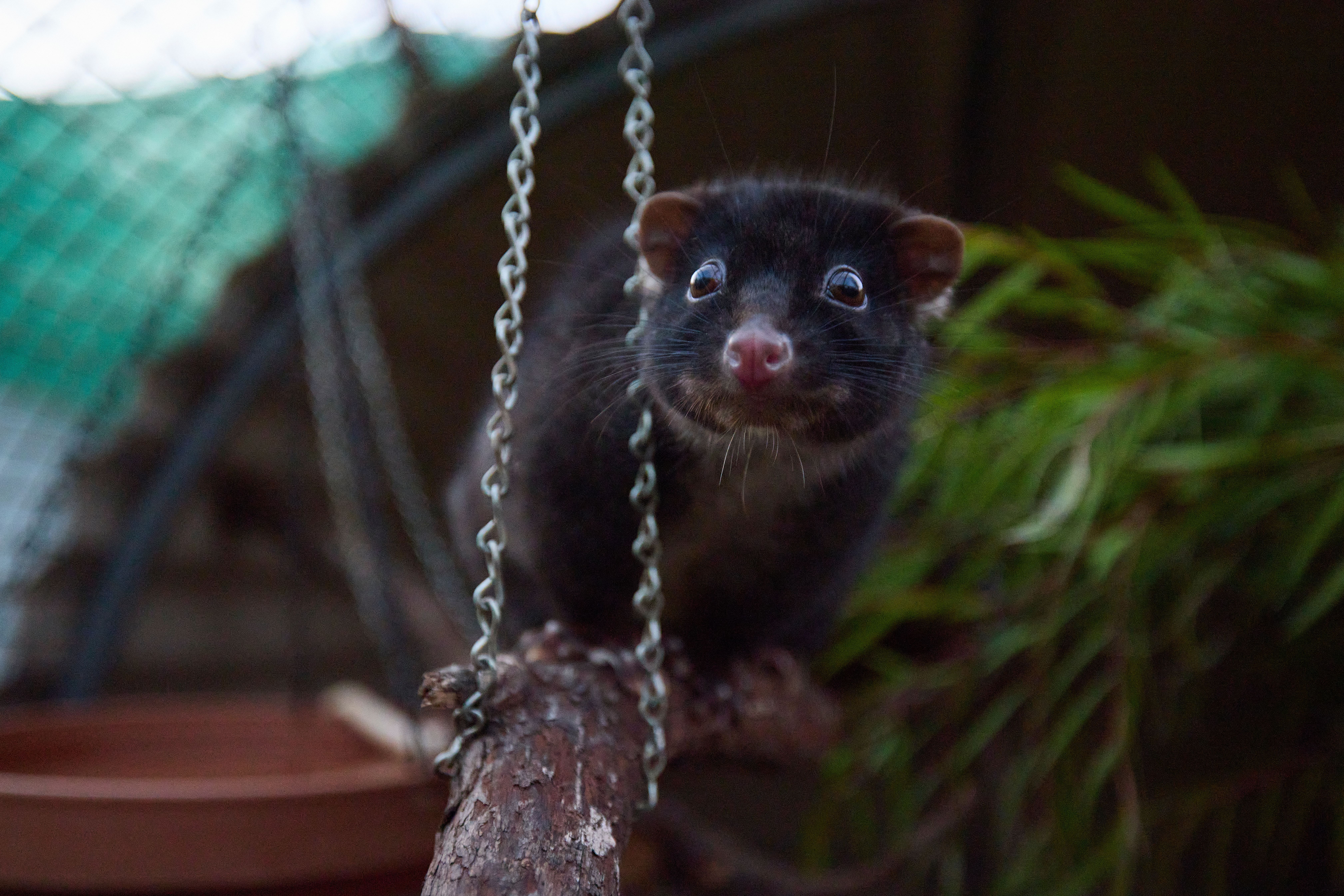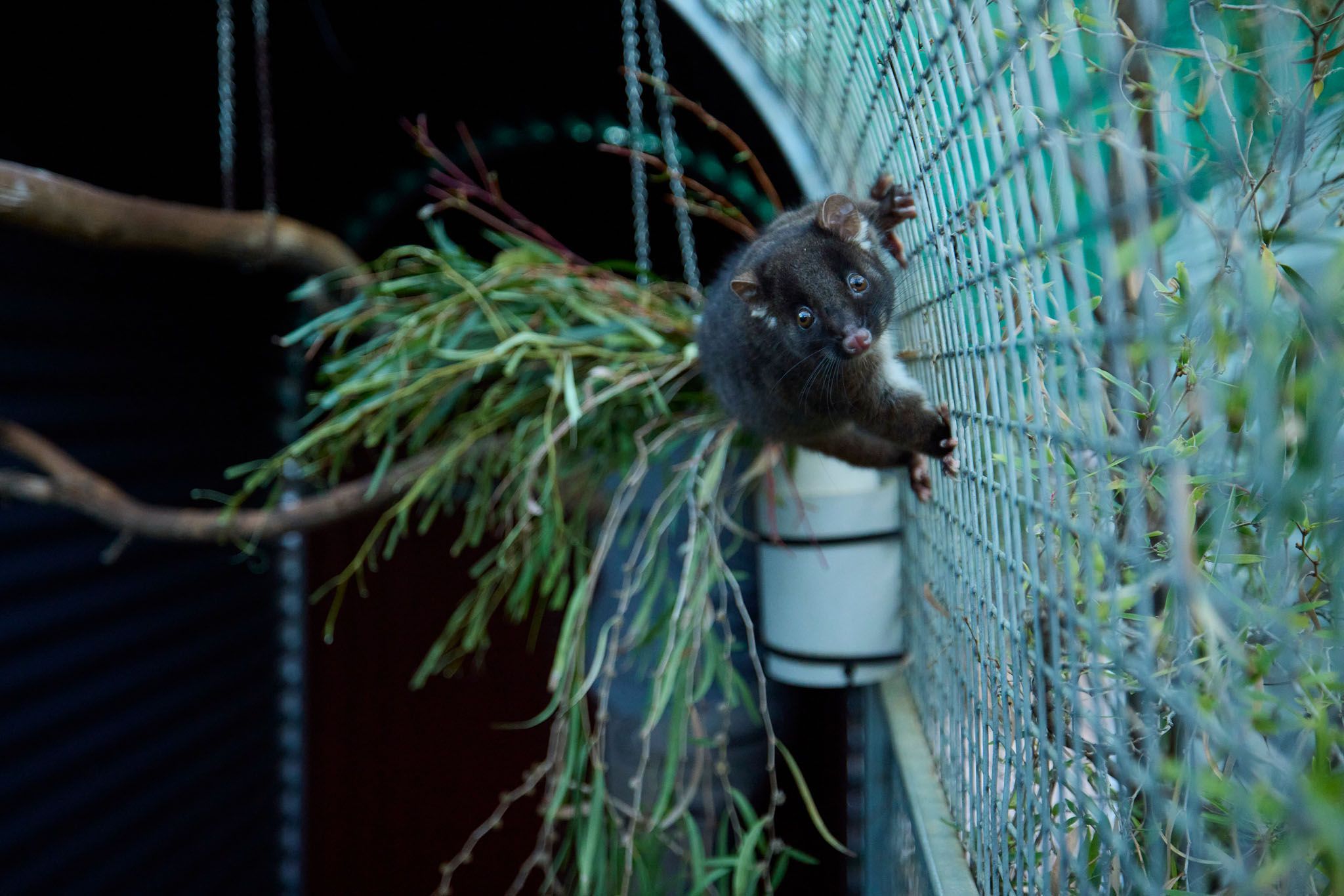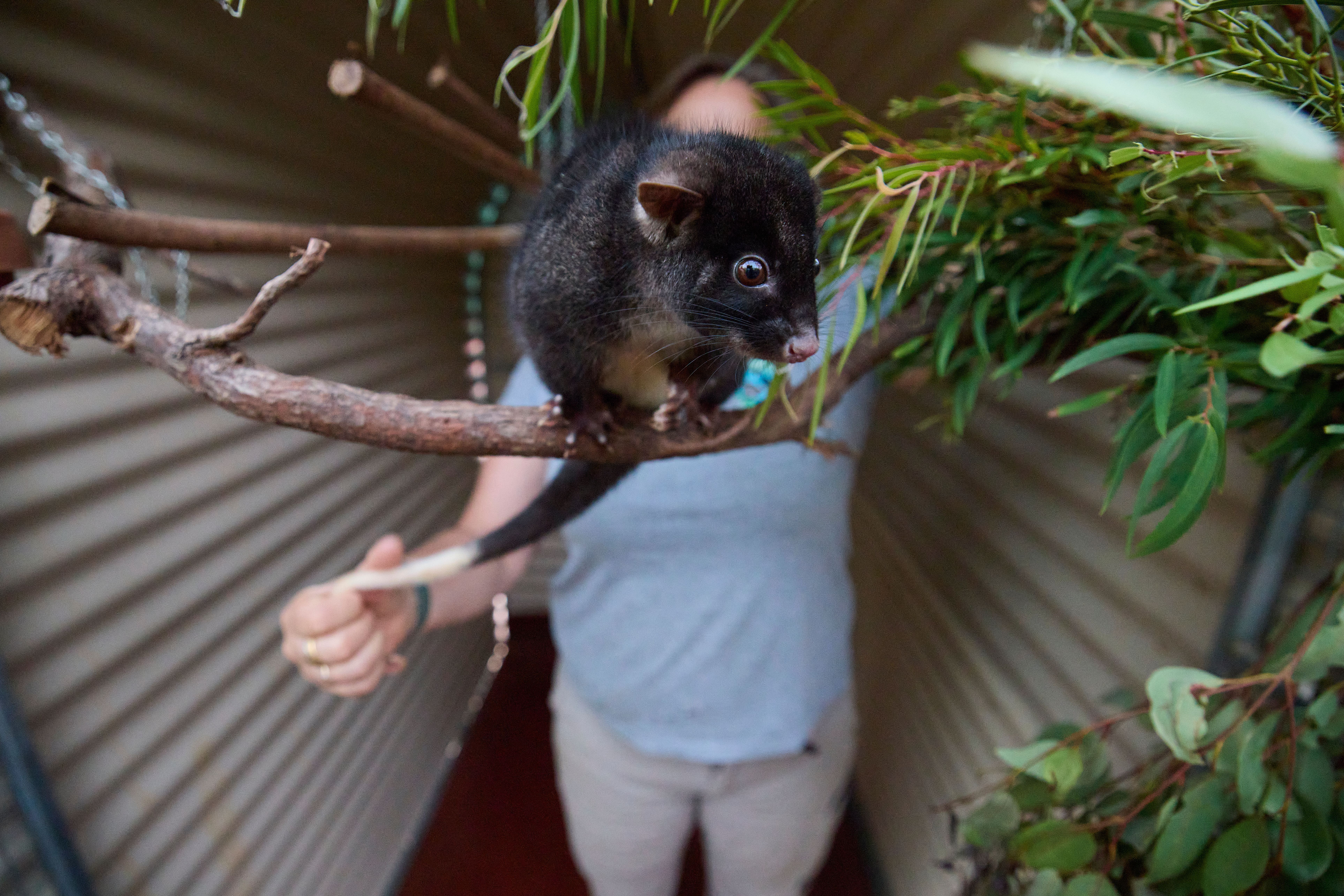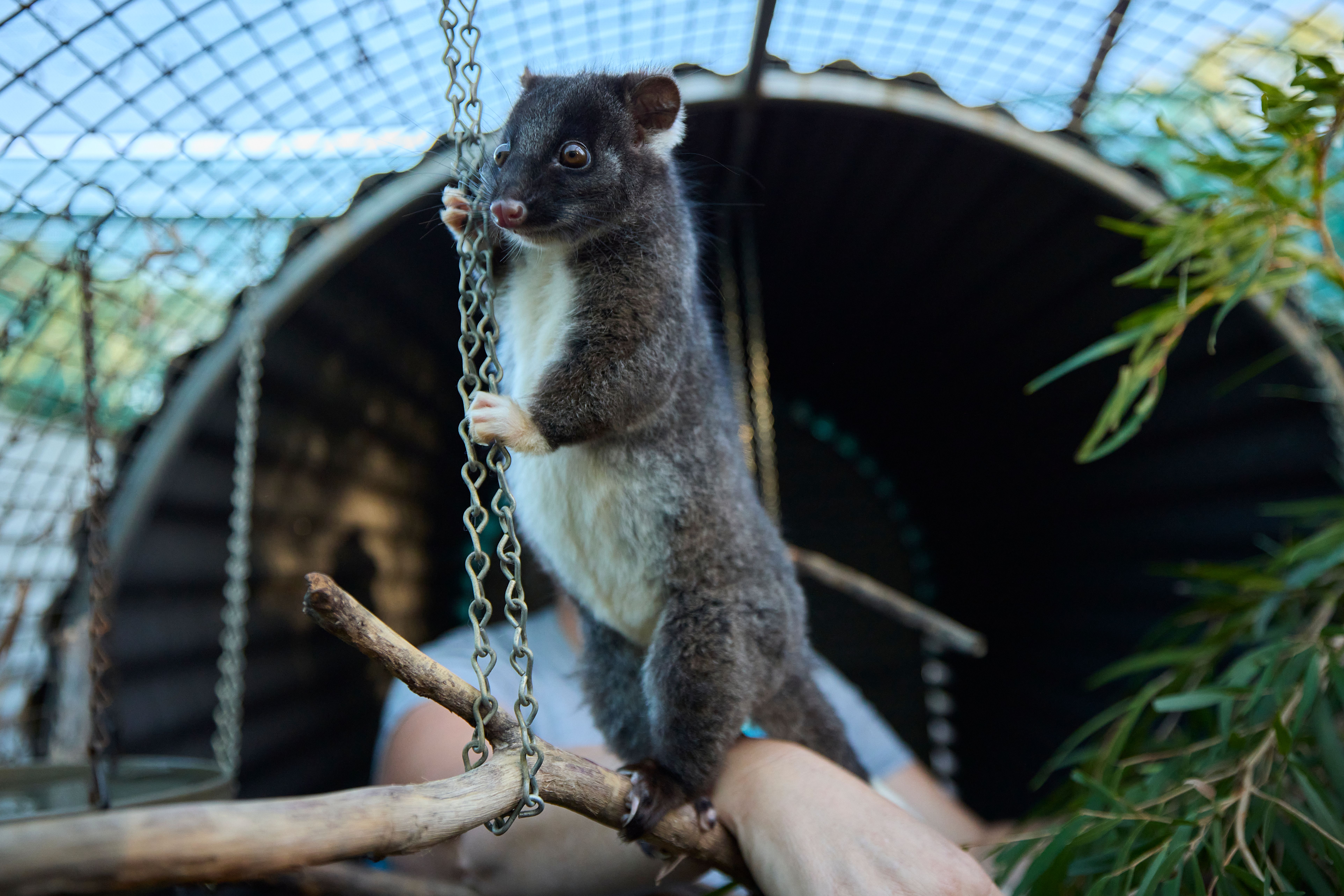Keeping pets secure at night is a big help, according to Nicole Lincoln from GeoCatch; “domestic dogs and cats have a huge impact on the local possums. Even a harmless scratch from a cat can kill a possum quickly from infection.” A dog barking can cause a possum to fall, and if the dog then picks up and plays with the possum, it can be enough to kill it from fright. GeoCatch has been busy promoting the ‘catio’ – a fully enclosed structure that gives cats the freedom to safely enjoy the outdoor elements without harming local wildlife.
You can also include native Australian plants in your garden, that offer food and protection for both the possums and birdlife too. Although rose buds are delicious, possums prefer peppermint leaves, so try to retain existing peppermints or plant new peppy trees on your verge. Nicole also recommends peppermints as possums love using them to build a drey (nest), and jarrah and marri also provide excellent possum food.
If you find an injured or dead possum, always check its pouch for live young, and call FAWNA on 0438 526 660.
Finally, buy a soft possum toy to support Western Ringtail Possum conservation. You’ll find them at the Busselton and Margaret River Visitor Centres.
